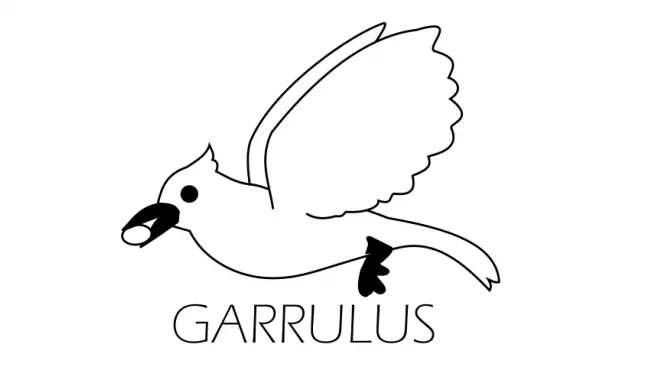Research at the university
Research Database: Projects
Forschungsprojekte (196)
In the Sensorium+ project, the Institute of Visual Computing (IVC) at Bonn-Rhein-Sieg University of Applied Sciences, in collaboration with VAGOSolutions, is developing an innovative augmented reality platform that utilizes artificial intelligence to enable accessible and multisensory experiences in museums. The aim is to make cultural education accessible and engaging for as many people as possible, with a particular focus on individuals with sensory, motor, or cognitive impairments.
The BMWK-funded joint research project “F-HiL Reloaded” is dedicated to the research and development of a holistic Power Hardware-in-the-Loop test, inspection and validation system for the integration of grid-forming power converters into the energy utility system as well as intelligent test procedures..
Project management at the H-BRS
Prof. Dr Marco JungThe Biolab project is dedicated to the continuous and comprehensive evaluation of biometric systems. The project investigates the performance, security and usability aspects of biometric systems. The results lead to training courses and workshops for authorities, police forces, manufacturers and end users. The Biometrics Evaluation Center (BEZ) at the Sankt Augustin campus is the place of implementation.
Project management at the H-BRS
Prof. Dr Norbert Jung Prof. Dr Robert LangeThe project continues the research work and test operation of the Biolab project. In addition to existing research focuses, the project is also dedicated to new approaches in biometrics, such as the development of quality metrics for synthetic characters and the use of time-of-flight cameras to detect overpass attacks.
Project management at the H-BRS
Prof. Dr Robert Lange Prof. Dr Norbert JungKEROL aims to develop (i) a data collection and annotation interface that makes it possible to execute various robot skills and annotate execution failures in those, and (ii) a simulation-based environment that can be used to evaluate the execution of learned skills under a variety of conditions.
Project management at the H-BRS
Dr Alex MitrevskiThe objective of INNERVATE is to develop a solution to automatically evaluate the quality of driver maneuver execution and to support drivers with information about the parts of the maneuver where they have made mistakes. This involves the evaluation of measurement series, finding errors, and explaining what needs to be done to avoid these errors. In addition, it should be possible to generate valid measurement series from partially correctly executed maneuvers.
Project management at the H-BRS
Professor im Ruhestand / retired professor Dr. Paul G. PlögerResearchers from all disciplines are confronted with increasingly large amounts of data. The newly founded Rhine-Ruhr Center for data literacy (DKZ.2R) has set itself the goal of supporting and promoting researchers from a variety of research disciplines with regard to increasingly complex data analysis, data management and high-performance computing.
Project management at the H-BRS
Prof. Dr Sebastian HoubenThe Garrulus project aims to develop a fast, reliable and cost-effective method for the reforestation and monitoring of damaged forest areas in Germany. The automated direct seeding of trees offers a good opportunity to grow site-adapted and resilient trees. To this end, the sowing should be targeted at locations with the best possible conditions. Technologies such as drones and artificial intelligence should make the efficiency and effectiveness of direct seeding viable through precise seed planning, targeted drone seeding and subsequent regeneration monitoring.
Project management at the H-BRS
Prof. Dr Alexander Asteroth Prof. Dr Sebastian HoubenThe EcoTwin research project is researching how urban green spaces can reduce climate change. The aim is to support environmental and green space authorities in sustainable land management through a digital twin and to provide data-based and location-adapted measures. Modern sensors and AI technologies help to bundle environmental information and process it in a meaningful way. Citizens are actively involved and can participate in their private green spaces. EcoTwin strives for a sustainable and climate-resilient use of urban green spaces.
Project management at the H-BRS
Prof. Dr Martin HamerCBRN incidents and resulting casualties are a permanent threat across the continent. In past incidents, First Responders were often required to provide help without having conducted sufficient training on how to operate in CBRN incidents. Moreover, First Responders seldom are aware of the risks that CBBN material poses to their health. The management of a CBRN scene including the recovery of persons concerned requires standard operating procedures, advanced skills and suitable equipment. A step-by-step approach needs to include (1) detection of the CBRN threat, (2) triage of casualties and (3) on-site decontamination before the provision of medical aid. The aim is to establish a unified framework for evaluating capabilities, procedures and co-developed solutions to be used in CBRN-E preparedness and response.
Project management at the H-BRS
Prof. Dr Peter-Michael KaulContact Points
Centre for Science and Technology Transfer (ZWT)
Room
F 405
Vice President Research and Transfer
Campus
Sankt Augustin





